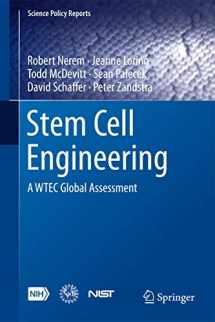
Stem Cell Engineering: A WTEC Global Assessment (Science Policy Reports)
Book details
Summary
Description
This book describes a global assessment of stem cell engineering research, achieved through site visits by a panel of experts to leading institutes, followed by dedicated workshops. The assessment made clear that engineers and the engineering approach with its quantitative, system-based thinking can contribute much to the progress of stem cell research and development. The increased need for complex computational models and new, innovative technologies, such as high-throughput screening techniques, organ-on-a-chip models and in vitro tumor models require an increasing involvement of engineers and physical scientists. Additionally, this book will show that although the US is still in a leadership position in stem cell engineering, Asian countries such as Japan, China and Korea, as well as European countries like the UK, Germany, Sweden and the Netherlands are rapidly expanding their investments in the field. Strategic partnerships between countries could lead to major advances of the field and scalable expansion and differentiation of stem cells. This study was funded by the National Science Foundation (NSF), the National Institutes of Health (NIH) and the National Institute of Standards and Technology (NIST).


We would LOVE it if you could help us and other readers by reviewing the book
Book review



